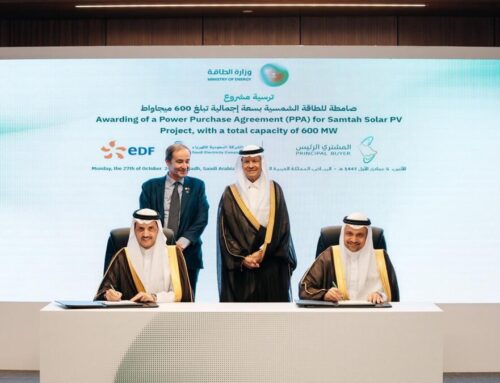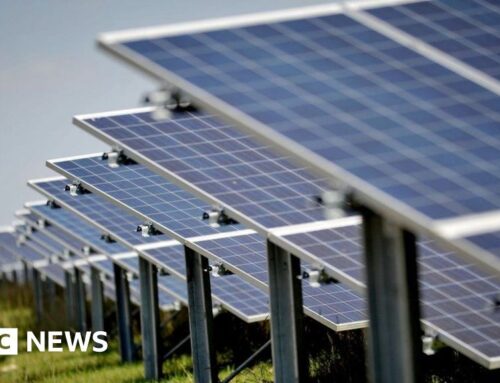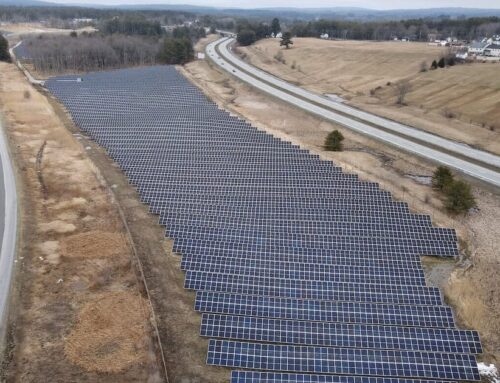Addressing water insecurity and building trust in rural Arizona
October 8, 2025
In rural Arizona, access to safe and affordable drinking water is not guaranteed. Households in rural communities often rely on private wells, small treatment systems or hauled water, all of which can be unreliable and expensive.
Arizona Water for All, or AW4A, a pillar of Arizona State University’s Arizona Water Innovation Initiative, is addressing water insecurity through a new project that identifies unsafe water sources and engages rural communities in sustainable water practices.
The project is being done in collaboration with the Rural Community Assistance Partnership and Rural Community Assistance Corporation.
The first phase of the work focuses on engaging water-insecure households with different distribution types, including private wells, shared wells and small treatment systems. With a mix of household interviews and water testing, the team aims to provide an array of possible interventions to residents.
Community access and trust
To begin, researchers are working with 20 water-insecure households in Yuma County, a heavily agricultural region with diverse water supply challenges.
The fieldwork is being led by Carolina Jordão and Daniel Salcedo, who have been blending their respective skills in social science and water quality testing and interpretation.
Jordão is an environmental social scientist and trained facilitator whose career has spanned from the Amazon rainforest in Brazil, where she is from, to the deserts of Arizona. Her expertise lies in listening: building trust with communities, engaging households and connecting local experiences and knowledge with broader technical and policy solutions.
“It’s how you talk with people and truly listen to their stories, perspectives and concerns,” Jordão said. “That’s what makes the work possible. We need to first understand people before being understood. This is a lesson I carry with me from over a decade of working with local communities to address environmental issues.”
Salcedo is an environmental scientist who focuses on water and wastewater treatment. It’s something he understands both personally and professionally.
“I have almost two decades of experience working with many kinds of pumps, piping, flowcharts, maintenance and filtration systems,” Salcedo said. “As a Mexican, I can communicate in Spanish with community members that are mostly located along the U.S. border with Mexico. Where I am from, we have always struggled with water scarcity and bad water quality, and the promise and peril of proposed solutions, so I empathize greatly with any community struggling with water security.”
Central to the project’s progress has been the partnership with the Rural Community Assistance Corporation, or RCAC, a regional affiliate of the national Rural Community Assistance Partnership network. Partnership organizations have decades of experience helping rural and underserved communities improve drinking water, wastewater and solid waste services.
When the AW4A team began its work in Yuma County, RCAC provided more than logistical support.
Its team — Raul Vazques, Allison Jermain, Pablo Figueroa and Sierra Kubicki — co-designed outreach efforts and went door to door, introducing the researchers to households and helping to schedule interviews and water testing. This kind of access is not easily earned.
“Community outreach and being in the field with community members allows us to hear their stories, understand their challenges and bring that knowledge back into the research process,” Vazques said. “It’s what makes our work relevant and impactful. Partnerships like this ensure that the voices of rural communities are central to shaping solutions that work for them.”
The collaboration illustrates the strength of pairing university-based research with community organizations. AW4A brings socio-technical expertise and evaluation capacity, while the RCAC offers community credibility, local staff and deep knowledge of rural water systems.
“We are scientists from a university in Tempe, and we are both from other places — me from Brazil and Daniel from Mexico — with limited time to be in the field,” Jordão said. “Getting inside someone’s home to test their water requires trust. RCAC’s presence made that possible.”
Together, the groups are piloting what AW4A lead Amber Wutich, an ASU Regents Professor and President’s Professor, and colleagues call modular, adaptive and decentralized water solutions — tailored interventions that combine engineering with social engagement.
Household surveys and water testing
Jordão and Salcedo had long, demanding field days over the summer. They did interviews in Spanish, Jordão’s third language, often working in temperatures over 100 degrees.
RCAC colleagues knocked on doors to secure participation. Jordão asked households about the origins of their drinking water, whether they used treatment systems, why they trusted or distrusted certain sources and how they made decisions about bottled water versus tap.
The team also explored social networks: Did residents rely on neighbors during water shortages, and how strong were community ties? These questions matter because sustainable solutions depend as much on social infrastructure as on technical fixes.
Meanwhile, Salcedo collected water samples from sinks, storage tanks and treatment systems inside and outside homes, answered technical questions and described the analyses and why they were important. Early water sampling results reveal hard water and traces of metals in some households.
Residents expressed many concerns, ranging from the smell and taste of their water to the deposits left behind on shower heads and appliances to the safety and reliability of their water service.
For example, one resident said, “We started buying bottles of water because we’re afraid to even drink the water.”
Many also commented on the color of the water and difficulty washing clothes, with another resident saying, “When they start turning yellow after two or three washes, it’s easier for me to go buy a pack of T-shirts than to wash the clothes again.”
For many families, the testing provided their first clear understanding of what was in their water. In other cases, simply learning that their water was safe to drink brought relief and reduced reliance on bottled water.
Jordão recalls that people often began ambivalent about testing but grew more interested as the interview deepened. Curiosity turned into relief, empowerment and, in some cases, urgency when problems were identified.
Looking ahead
The project’s impact is already visible on several levels.
First, it provides households with peace of mind. Knowing whether their water is safe, or what steps they can take to improve it, removes a daily source of anxiety.
Second, solutions offer potential economic benefits. Bottled water purchases are a significant expense for low-income households, and safe tap water can reduce that burden.
Third, it strengthens public health protections by identifying contaminants early and connecting households to solutions.
The AW4A team is committed to more than diagnostics. They are developing workshops, reports and interactive videos to share results with households and communities. Future interventions may include installing treatment systems, training local plumbers or community college students to maintain equipment and designing collective solutions so neighbors can support each other in system upkeep.
“Because all technical interventions have a social aspect, understanding residents’ views, preferences and social context is an essential part of designing lasting engineering solutions,” said Patrick Thomson, research scientist with AW4A. “We want to see, for example, if we implement a technological solution, how can residents support each other to maintain that technology?”
By the end of the year, the team aims to expand from the initial 20 households to 80 more across rural Arizona, while planning for even more in the following year. To meet this scale, they are exploring ways to train local partners, including RCAC staff and grassroots groups, to use water testing kits and help maintain continuity after the project’s funding ends.
What distinguishes this effort is its integration of social and technical approaches. Many water interventions fail because they treat communities as passive recipients of technology. In contrast, the team invests time in listening, co-designing and building the social capacity that ensures solutions endure.
For RCAC and the Rural Community Assistance Partnership, the collaboration also represents an opportunity. The approach being developed in Yuma could serve as a national model for addressing water insecurity in other rural and underserved communities.
“At RCAP, we believe access to safe drinking water is a right, not a privilege. That’s why we are honored to partner with ASU and RCAC on the AW4A project,” said Olga Morales-Pate, chief executive officer for the Rural Community Assistance Partnership. “We are working collaboratively with rural and coloniaFrom Merriam-Webster: An unincorporated settlement (as of Mexican-Americans or Mexicans) in the U.S. usually near the Mexican border that typically has poor services and squalid conditions. communities across Arizona to identify unsafe water sources, co-design innovative, modular water solutions and ensure families have the training and support they need to keep those systems sustainable.”
In the end, the project’s vision is simple but profound: Every household, regardless of geography or income, should have access to safe and affordable water and the confidence that comes with it.
“People not worrying about water makes their life better,” Jordão said. “It’s one less burden, which is major, especially for underserved and low-income households. It’s the foundation for everything else.”
Why this research matters
Research is the invisible hand that powers America’s progress. It unlocks discoveries and creates opportunity. It develops new technologies and new ways of doing things.
Learn more about ASU discoveries that are contributing to changing the world and making America the world’s leading economic power at researchmatters.asu.edu.
Search
RECENT PRESS RELEASES
Related Post







